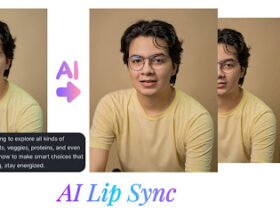The digital world continues to expand at an incredible pace, creating both opportunities and challenges. With millions of pieces of content being generated daily, finding the right information quickly and efficiently is becoming harder than ever. In this fast-moving landscape, Seekde has emerged as a promising solution, offering more than just search capabilities. It represents a transformative shift in how knowledge is accessed, processed, and delivered.
Seekde is not just another tech product—it symbolizes the evolution of traditional search systems into smarter, more contextual, and user-centric digital experiences. Whether you’re a student looking for focused learning resources, a professional seeking data-driven insights, or a casual user navigating everyday queries, Seekde has the potential to reshape your digital interactions.
What is Seekde?
Seekde is best described as an AI-powered knowledge ecosystem that integrates semantic search, personalization, adaptive algorithms, and multi-format content delivery. Unlike traditional search engines that rely heavily on keyword matching, Seekde focuses on understanding user intent, contextual meaning, and individual learning behavior to provide precise and personalized results.
Its core function lies in helping users navigate complex data efficiently. Whether you’re researching a topic, looking for educational resources, or simply trying to solve a problem, Seekde aims to serve not just answers—but understanding.
In an internet dominated by a few major players, Seekde introduces innovation by focusing on user-first design, smarter content structuring, and AI-driven delivery.
The Vision Behind Seekde
Seekde’s rise is part of a broader transformation in how users engage with technology. People no longer want to scroll through pages of irrelevant links. They want explanations, context, and adaptability—something that understands them and their needs. Seekde aims to deliver on this promise by acting less like a search engine and more like a smart knowledge assistant.
Here’s the fundamental vision behind Seekde:
- Understand context, not just keywords
- Deliver multi-format content for different preferences
- Learn from user interactions to improve over time
- Offer linked insights using data relationships
- Make knowledge accessible, organized, and actionable
This vision positions Seekde at the intersection of AI, education technology, productivity tools, and semantic web innovations.
Key Features of Seekde
Seekde’s promise lies in its technical capabilities and human-centric design. Here’s a deeper dive into its standout features:
1. Semantic Search
Unlike traditional keyword-based search engines, Seekde uses semantic search to understand the meaning behind queries. It interprets natural language, identifies key entities, and evaluates relationships between terms. This leads to far more relevant and accurate results.
Example:
Search for “how climate change affects oceans,” and Seekde doesn’t just match keywords—it connects you with materials on ocean acidification, melting ice caps, marine biodiversity, and international policy discussions.
2. Personalization
Seekde incorporates user behavior, preferences, and history to shape the search experience. Over time, the system learns what topics you engage with most and starts offering tailored suggestions.
Whether you’re a medical student focused on anatomy or a startup founder researching market trends, Seekde adapts the content it delivers based on who you are and how you learn.
3. Adaptive Learning
Seekde employs a feedback loop that enables self-improvement. As more users interact with it, the platform refines its algorithms to offer better results. It can identify patterns in user behavior and provide predictive assistance—helping you find what you need before you even ask.
This aligns well with principles of machine learning and reinforcement learning, where systems evolve through experience.
4. Knowledge Graph Integration
One of Seekde’s most advanced capabilities is its likely use of a knowledge graph—a structured database that maps relationships between ideas, concepts, and entities.
Instead of isolated answers, Seekde provides:
- Contextual overviews
- Interrelated topic suggestions
- Deep dives through concept mapping
For example, searching for “quantum computing” might lead you to resources on quantum physics, computer science fundamentals, ethical implications, and real-world applications—all connected in a logical flow.
5. Multi-Format Responses
Seekde doesn’t limit responses to just text. It embraces multi-format content delivery, offering results in the form of:
- Brief summaries
- Long-form explainers
- Infographics
- Video tutorials
- Audio breakdowns
- Interactive visualizations
This variety increases accessibility and improves comprehension for diverse learning styles.
How Seekde Fits into Today’s Digital Trends
Seekde isn’t emerging in a vacuum. Its creation reflects broader shifts in digital behavior and technology use. Here’s how it aligns with key trends:
The Move Toward AI Assistance
AI assistants like ChatGPT, Siri, and Alexa have changed user expectations. Seekde fits naturally into this category, offering smarter interaction through natural language and real-time learning.
The Problem of Information Overload
There are more than 5 billion web pages online today. Navigating this vast ocean of content requires intelligent filters. Seekde’s semantic and adaptive systems cut through the noise, delivering only what matters.
Demand for Personalization
According to a study by Accenture, 91% of consumers are more likely to engage with brands that offer personalized experiences. Seekde’s design directly responds to this expectation with context-aware search and learning pathways.
Cross-Platform Access
Users today operate across multiple devices—phones, tablets, laptops, wearables, and even VR/AR headsets. Seekde is poised to deliver device-agnostic experiences, ensuring seamless knowledge access wherever the user goes.
The User Experience with Seekde
Seekde isn’t just for one group—it’s a versatile platform that serves a broad range of users:
For Students
Students often waste time sifting through irrelevant material. Seekde can:
- Provide topic summaries
- Break down complex subjects
- Recommend structured learning paths
- Suggest educational videos or flashcards
This makes it an ideal digital learning assistant.
For Professionals
Business professionals, marketers, engineers, and executives need up-to-date and digestible information. Seekde:
- Condenses market trends
- Recommends relevant case studies
- Offers strategic insights from trusted sources
This helps professionals save time and stay informed.
For Researchers
Researchers value depth and connectivity. Seekde enhances the research process by:
- Mapping conceptual relationships
- Suggesting relevant citations
- Identifying gaps in literature
It’s a powerful discovery engine for academic or scientific inquiry.
For Everyday Users
From cooking recipes to product reviews, casual users benefit from Seekde’s:
- Simple interface
- Personalized suggestions
- Summarized answers
It turns everyday questions into quick, accurate, and useful interactions.
Challenges Seekde May Face
While Seekde holds enormous promise, it is not without hurdles. Understanding these challenges is essential for long-term success.
1. Strong Market Competition
With giants like Google, Microsoft, and Amazon dominating search and AI, Seekde will need a clear differentiator and sustained innovation to carve its niche.
2. Data Privacy Concerns
Personalization requires data—but users are increasingly wary of how their data is used. Seekde must prioritize:
- Transparency
- Opt-in data collection
- Compliance with regulations like GDPR and CCPA
3. Misinformation Risks
As an AI-driven platform, Seekde must implement robust validation systems to avoid the spread of false or misleading information.
Integrating trusted sources, citation engines, and content rating systems can help ensure credibility.
4. Infrastructure and Scalability
Handling millions—or billions—of real-time queries requires high-performance cloud architecture, distributed systems, and scalable machine learning models.
Infrastructure readiness will determine Seekde’s ability to compete at scale.
Conclusion
Seekde represents a paradigm shift in how users access and engage with digital knowledge. By combining semantic search, adaptive learning, personalization, and multi-format delivery, it goes far beyond the limitations of traditional search engines.
Its ability to understand user intent, learn from interactions, and deliver intelligent, context-rich content sets it apart as a future-ready platform. For students, professionals, researchers, and everyday users alike, Seekde offers a smarter, more human-centric way to find and absorb information.
While it will need to overcome challenges around trust, scalability, and competition, Seekde’s foundation is built on the very principles that define the future of digital engagement—context, connection, and clarity.
FAQs
Is Seekde a search engine?
Not in the traditional sense. While it helps users find information, Seekde functions more as a knowledge assistant, using AI and semantics to deliver context-rich answers.
Who can use Seekde?
Anyone. From students to professionals to casual users, Seekde is designed to adapt to different needs and learning styles.
How is Seekde different from traditional systems?
Traditional search engines rely on keyword matching. Seekde uses semantic understanding, personalization, and AI-powered content delivery to offer more relevant results.
Does Seekde use AI?
Yes, Seekde integrates multiple AI technologies including machine learning, natural language processing, and knowledge graph mapping.
Will Seekde replace traditional search engines?
Not immediately. But it could complement or enhance them, especially for users looking for more focused, intelligent, and personalized knowledge access.
For More Latest Update biomagazine.co.uk












Leave a Reply